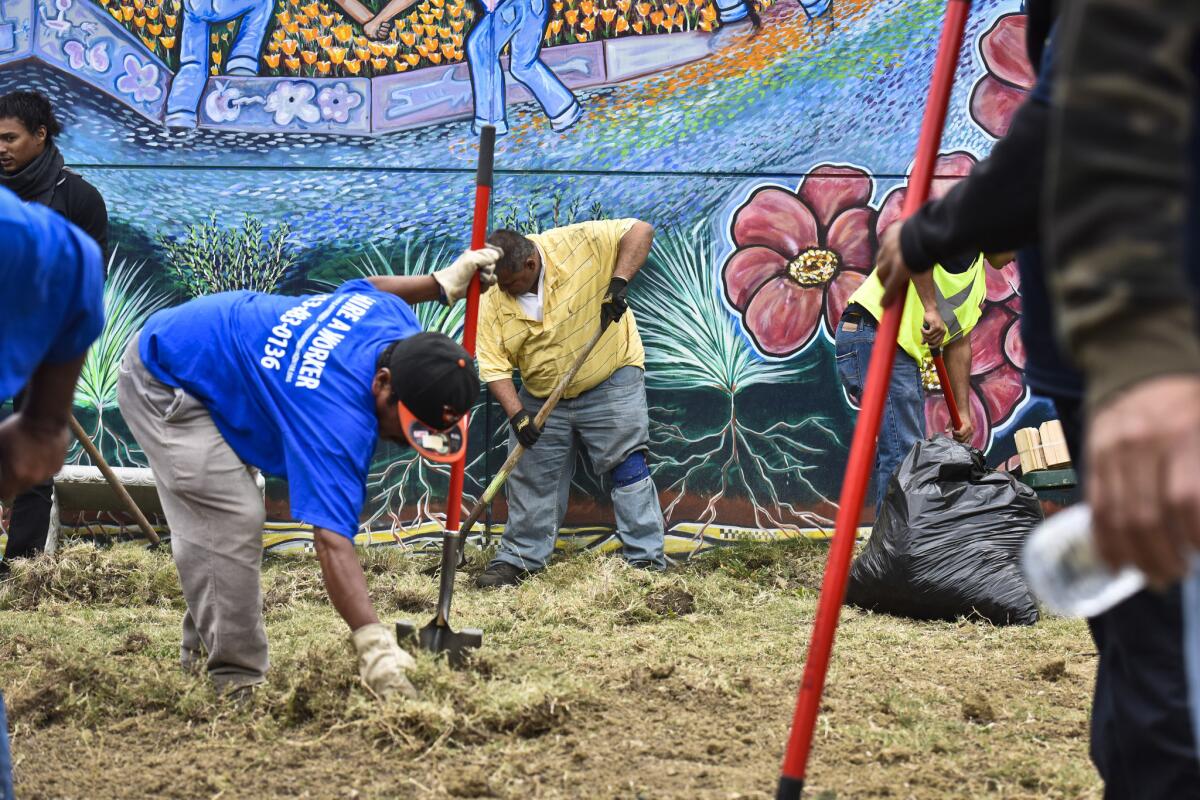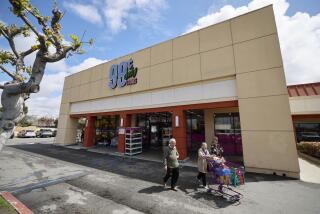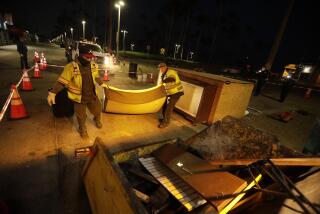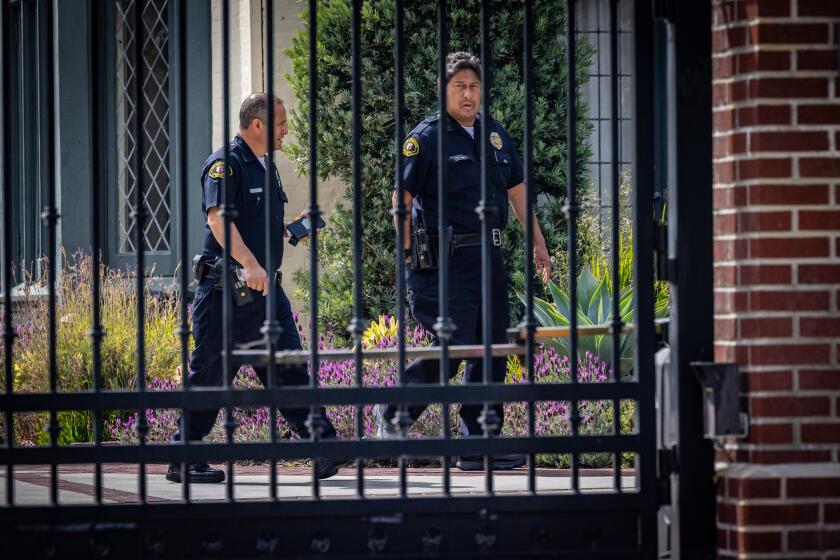Dayworkers help at school garden to highlight fruits of their labor

Most mornings, day laborer Guillermo Perez heads to the Home Depot near MacArthur Park to look for work. If he’s lucky, he brings home $100.
Last week, Perez gave up the prospect of a paycheck one morning to volunteer at a local elementary school. For five hours, beneath a dark sky that threatened rain, Perez and other workers raked soil and trimmed trees in a garden where students are growing tomatoes, zucchinis and peppers.
Workers have been volunteering at Evelyn Thurman Gratts Elementary School in Westlake to highlight their contributions to the city after Los Angeles Mayor Eric Garcetti slashed funding for the city’s day laborer centers in his proposed budget for next year.
The nonprofits that run the seven centers, which connect workers with temporary construction, landscaping and other jobs and provide training to protect them from exploitation, say they cannot survive on the $250,000 Garcetti has earmarked for their programs.
“We’re trying to convince them that this isn’t just a charity program,” said Tessie Borden of the Central American Resource Center, which runs a job center near the Home Depot. “We’re a part of the community, and we’re a resource. We’re not just taking from the city.”
The day labor centers were once supported by about $1 million in annual federal community development grants. That funding dried up, forcing several centers to temporarily close last year and the city to step in and help.
The city spent about $700,000 on the centers in 2014-15. Garcetti, who has put investment in public safety at the center of his budget, wants to reduce that by about half a million dollars next year.
Public subsidies for job centers have sparked controversy in the past, with advocates for tougher immigration enforcement arguing that the centers legitimize a black-market economy.
About 30 workers started volunteering at the Westlake elementary school a couple of months ago, building planters for the garden and showing students how to yank weeds. Principal Maria Butler said the students are growing vegetables to connect them to their science lessons.
The garden is a rare patch of green in one of the city’s poorest and densest neighborhoods. Few of the school’s students have spent much time in nature, Butler said. “They know that vegetables come from the store, but they don’t know that before the store it comes from a farm.”
Perez, 51, who came to the U.S. from Mexico in 1974, said it had been fun teaching the children “that plants breathe and drink water, just like we do.”
He said his work in the school garden was an opportunity to show thanks. Perez became a U.S. citizen under a 1986 amnesty law and has several adult children.
“I’ve gotten a lot from this country in 40 years,” Perez said. “I want to give a little back.”
Wiping his brow after an hour of dusty work, Perez said he was there not only to help the vegetables grow, but also the students.
“These kids are the new generation of this country,” he said. “They will contribute one day, the same way these plants bear fruit.”
Twitter: @katelinthicum
More to Read
Start your day right
Sign up for Essential California for news, features and recommendations from the L.A. Times and beyond in your inbox six days a week.
You may occasionally receive promotional content from the Los Angeles Times.







